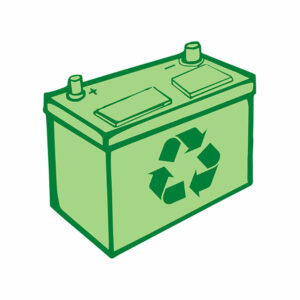Industry group calls for EPR to apply to makers, importers of lead batteries
THE Federation of Philippine Industries (FPI) said used lead acid batteries (ULAB) need to be included within the scope of the Extended Producers Responsibility (EPR) Act, citing the environmental impact of improperly discarded batteries. “We believe that compared to ordinary waste types like plastics covered by the EPR, used lead acid batteries should be treated […]

THE Federation of Philippine Industries (FPI) said used lead acid batteries (ULAB) need to be included within the scope of the Extended Producers Responsibility (EPR) Act, citing the environmental impact of improperly discarded batteries.
“We believe that compared to ordinary waste types like plastics covered by the EPR, used lead acid batteries should be treated with more urgency because of their immediate harmful effects on the environment and people,” FPI Chairman Jesus L. Arranza told reporters on Thursday.
Republic Act No. 11898 or the EPR Act of 2022 requires producers, manufacturers, and other companies to move away from single-use plastics and establish their own waste recovery schemes in partnership with communities, local governments, and others.
The law does not currently include EPR requirements for lead battery companies.
Mr. Arranza said that the Department of Environment and Natural Resources (DENR) should issue a Department Administrative Order to require lead battery companies to comply with the EPR law.
He added that the DENR should enforce the proper collection and recycling of ULABs from entities engaged in the production, import, and sale of the products.
He said that companies involved should have “satisfactorily proven that they have collected their ULABs and channeled them to accredited recyclers,” before selling new batteries.
“We are pushing for one to one. This means that, as an example, an entity that managed to collect 1,000 ULABs should only be allowed to sell 1,000 brand new batteries as well,” Mr. Arranza added.
He said that this would halt the spread of illegal lead battery smelters and ULAB waste recyclers.
“We are open, however, to a phased implementation, beginning at 20% in the first year, 50% in the second year, and 80% in the third year,” he added.
Waste producing companies that fail to register for EPR programs face fines of between P5 million and P20 million. Those that fail to comply and meet targeted recovery rates will also be fined. — Adrian H. Halili












